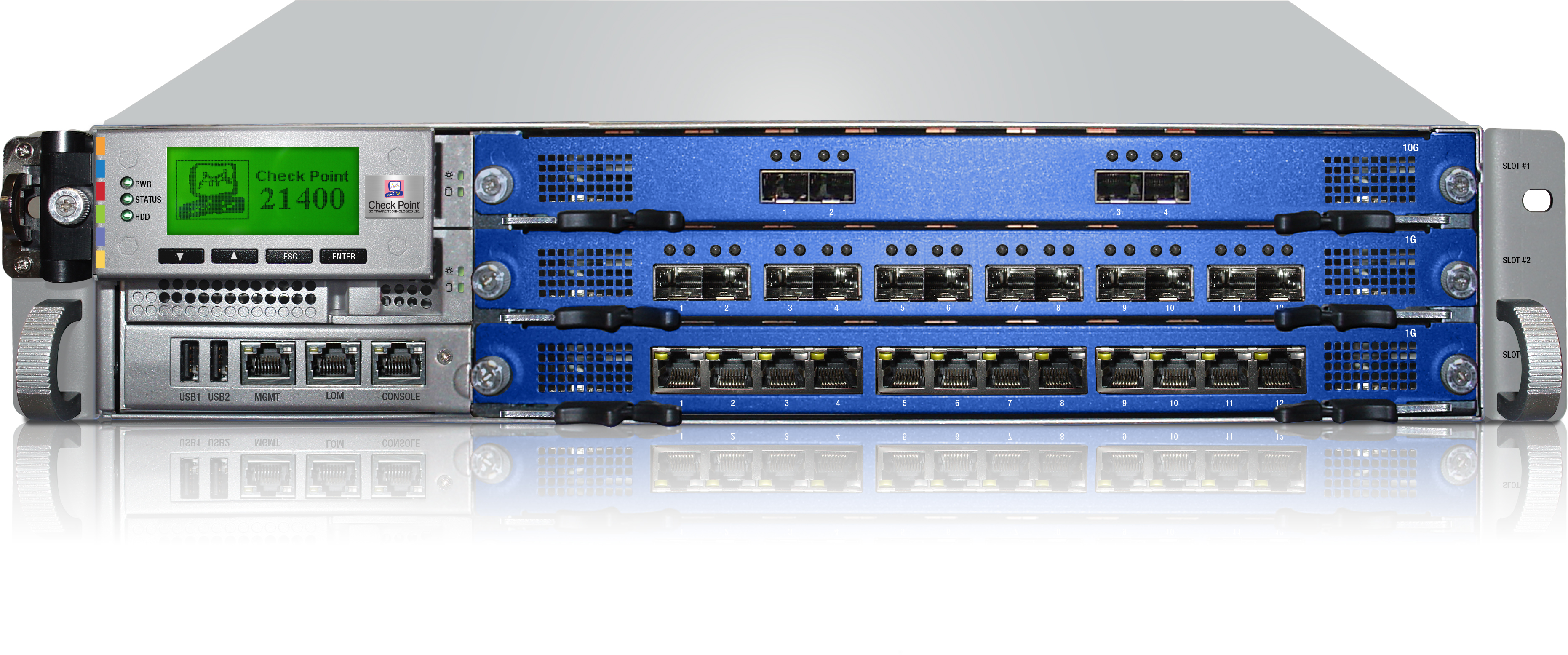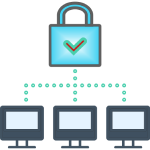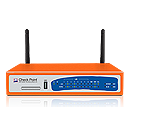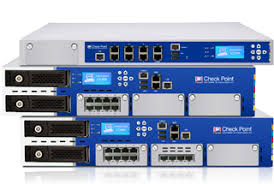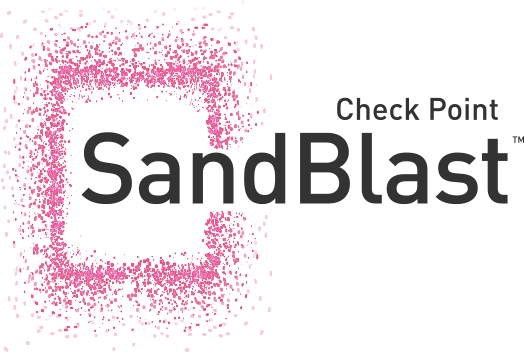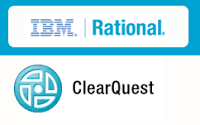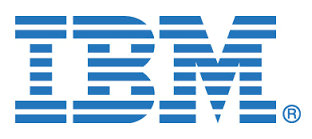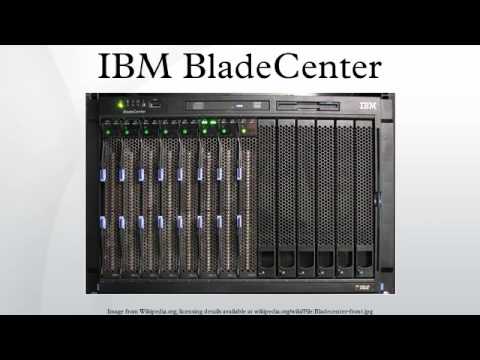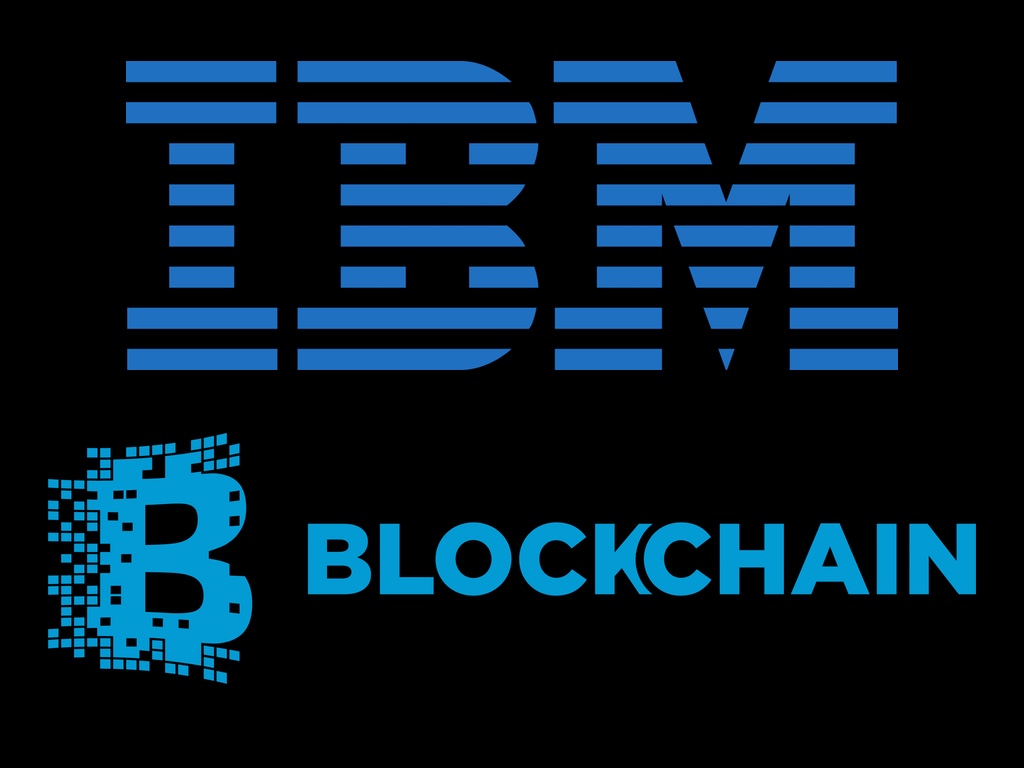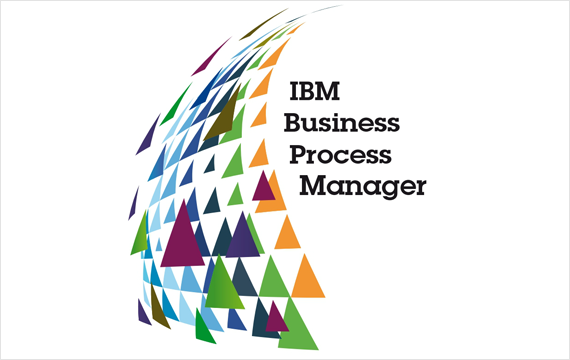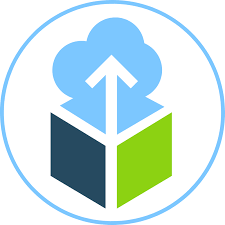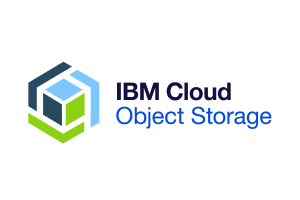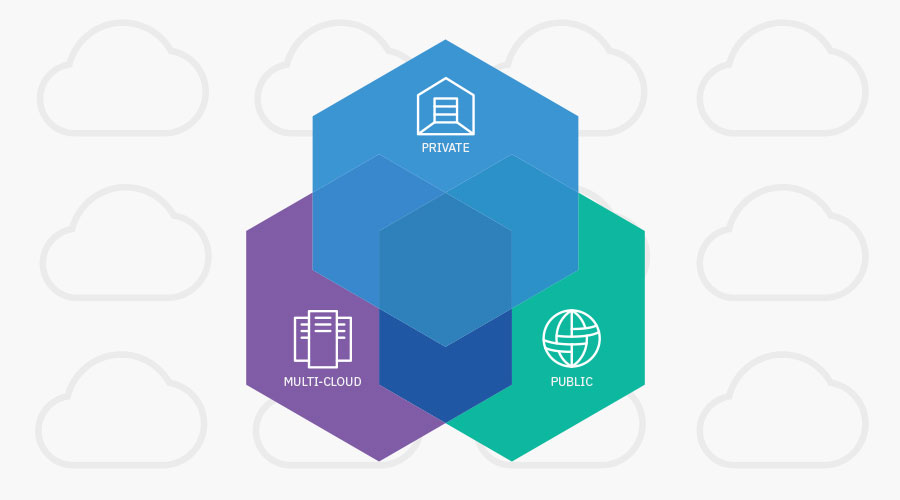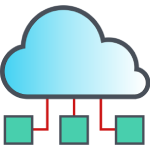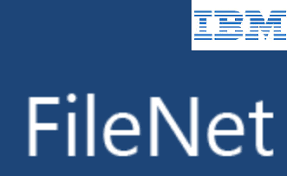View
Sorting
Products found: 73
Check Point 1200R
Features
Wide range of appliances for IT and OT networks The 1200R Rugged Appliance complements our extensive appliance family to support a diverse range of deployment environments and meet specialized requirements in ICS security. The 1200R complies with industrial specifications such as IEEE 1613 and IEC 61850-3 for heat, vibration and immunity to electromagnetic interference (EMI). In addition, the 1200R is certified for maritime operation per IEC-60945 and IACS E10 and complies with DNV 2.4. The 1200R Appliances can also be used in commercial deployments. Inspect Encrypted Connections There is a shift towards more use of HTTPS, SSL and TLS encryption to increase Internet security. At the same time files delivered into the organization over SSL and TLS represent a stealthy attack vector that bypasses traditional security implementations. Check Point Threat Prevention looks inside encrypted SSL and TLS tunnels to detect threats, ensuring users remain in compliance with company policies while surfing the Internet and using corporate data. Next-Generation Firewall Check Point Application Control has broad support for specialized Industrial Control System and SCADA protocols with granularity for over 800 SCADA specific commands. This enables protocol-specific visibility and controls with directional awareness. Integrated threat detection and prevention Detect and prevent targeted attacks against ICS/SCADA components in Operational Technology (OT) environments with specific protections for these highly vulnerable, unpatched, legacy embedded systems. Our threat prevention technologies have the best catch rate in the industry and can be deployed in detect-mode to minimize the disruption of operational processes. Best-in-class management Administrators can define security policy for the entire network — including internal security, main sites, and remote sites — from a single, centrally located Check Point Security Management server. With SmartProvisioning™, a profile-based management approach designed for large- scale deployments, administrators can define a single security and device profile and apply it simultaneously to thousands of appliances — dramatically reducing deployment time and administrative overhead.Benefits
- Deploy SCADA networking security in harsh environments and remote locations
- Full visibility and granular control of SCADA traffic
- Comprehensive security with SCADA-aware threat detection and prevention
Check Point 21000 Appliances
Check Point 600 Appliance
Check Point Intrusion Prevention System Software Blade
- Next-generation security prevention, protection and performance
- Industry-leading intrusion protection and firewall—as tested NSS Labs—delivers 1,000s of signature, behavioral and preemptive protections
- Check Point is ranked #1 in Microsoft and Adobe threat coverage
- Combines with best-of-breed firewall, application control, URL filtering, DLP and more on the most comprehensive, network-class next gen firewall
- Unrivaled, multi-Gigabit performance in an integrated IPS
- Up to 15 Gbps of IPS and 30 Gbps of firewall throughput
- Stateful Inspection and SecureXL technology deliver multi-tier IPS inspection and accelerated IPS throughput
- CoreXL technology provides the most efficient and high-performance use of multi-core technologies
- Lowest TCO and fastest ROI of any enterprise-class firewall solution
- One-click activation of IPS and firewall protection on any Check Point gateway
- Delivers unmatched extensibility and flexibility—all without adding CapEx
- Integrated into Check Point Software Blade Architecture for on-demand security
- Malware attacks
- Dos and DDoS attacks
- Application and server vulnerabilities
- Insider threats
- Unwanted application traffic, including IM and P2P
- Geo-protections
- New protections sandbox – Build confidence in a ‘sandbox’ environment with no impact on your network.
- Automatic protection activation – Activation of new protections, based on configurable parameters (performance impact, confidence index, threat severity). The difficulties of constant, individual management of thousands of protections are eliminated.
- Unified Management – The IPS blade is configured and managed through a common Check Point management interface—the same one used to manage other security gateway Software Blades and Check Point dedicated IPS.
- Configurable, actionable monitoring – Track events through detailed reports and logs of what is most important. The new Security Management Software Blade for IPS and Security Provisioning Software Blade simplify threat analysis and reduce operational overhead.
- Business-level views – Customizable reports provide easy monitoring of critical security events associated with your business-critical systems.
- Multi-dimensional sorting – Drag-and-drop columns of event data and the information will be automatically re-ordered.
- Actionable event logs – Edit the associated protection, create an exception or view packet data directly from log entries.
Check Point Next Generation Firewall (NGFW)
- Identify, allow, block or limit usage of applications, and features within them
- Enable safe Internet use while protecting against threats and malware
- Leverage the world's largest application library with more than 6,600 web 2.0 applications
- Create granular policy definitions per user and group
- Integrate seamlessly with Active Directory
- Protect environments with social media and Internet applications
- Rely on 24/7 advanced protection
- Reap the benefits of application control and intrusion protection (IPS), as well as extensibility support for additional security capabilities
- Get greater understanding into security events with integrated, easy-to-use centralized management
- Join more than 170,000 customers, including 100 percent of Fortune 100 companies
- Querying the Active Directory
- Through a captive portal
- Installing a one-time, thin client-side agent
Check Point SandBlast
Check Point SandBlast Agent provides purpose-built advanced Zero-Day Protection capabilities to protect web browsers and endpoints, leveraging Check Point’s industry leading network protections.SandBlast Agent ensures complete real-time coverage across threat vectors, letting your employees work safely no matter where they are without compromising on productivity. Threat Emulation capability emulates unknown files in contained environment to detect malicious behaviors and prevent infections while Threat Extraction provides sanitized risk-free files to the users instantly.
Anti-Ransomware protection stops ransomware in its tracks and reverses the damage automatically, ensures organizations are protected against malicious extortion attacks that encrypt business data and demand ransom payment for its retrieval. Zero Phishing proactively blocks access to new and unknown deceptive websites and safeguards user credentials by preventing the use of corporate passwords on external websites.
SandBlast Agent captures forensics data with continuous collection of all relevant system events, and then provides actionable incident analysis to quickly understand complete attack lifecycle. With visibility into the scope, damage, and attack vectors, incident response teams maximize productivity and minimize organizational exposure.
Features:
- Threat Emulation: Evasion resistant sandbox technology
- Threat Extraction: Delivers sanitized risk-free files to users in real-time
- Anti-ransomware: Prevents and remediates evasive ransomware attacks
- Zero-Phishing: Blocks deceptive phishing sites and alerts on password reuse
- Anti-Bot: Identify and isolate infected hosts
- Anti-Exploit: Protects applications against exploit based attacks
- Behavioral Guard: Detects and blocks malicious behaviors
- Endpoint Antivirus: Protects against known malware
- Forensics: Records and analyzes all endpoint events to provide actionable attack forensics reports
Benefits:
- Advanced threat protection and automated endpoint forensic analysis for all malware types
- Prevents and remediates evasive ransomware attacks
- Proactively blocks known, unknown and zero-day malware
- Provides instant actionable understanding of attacks
- Automatically remediates infections
- Protects users credentials
Check Point vSEC Virtual Edition
ClearQuest
Fast and Scalable Compute Resources
Virtual machine (VM) instances offer compute resources in many shapes, from a single OCPU to 24 OCPUs, catering to a variety of workloads and software architectures. All Oracle Cloud Infrastructure VM shapes support remote block storage, but the Dense I/O shapes also offer up to 25.6 TB of local NVMe SSD storage for applications requiring low latency, millions of IOPS, and high local storage capacity.
Bare metal instances support applications requiring intensive compute and large memory resources. You can build cloud environments with performance equal or better than other clouds or on-premises infrastructure. Bare metal provides customers with exceptional isolation, visibility, and control.
Accelerated computing requires consistently fast infrastructure across every service. With GPU instances you can process and analyze massive data sets more efficiently, making them ideal for complex machine learning (ML), artificial intelligence (AI) algorithms, and many industrial HPC applications.
IBM AI OpenScale
- Open-by-design. Integrate with common AI tools, frameworks, and environments across public, private, or on-prem.
- Trust, transparency and explainability. Provide explanations into how AI decisions are being made, and automatically detect and mitigate bias to produce fair, trusted outcomes.
- Automation of AI. Automate the AI application lifecycle, from AI-generated neural networks tailored to your data and workloads, to de-biasing technology that mitigates bias at runtime.
- Understand how AI applications reach decisions – AI OpenScale explains how AI recommendations are made in everyday business terms.
- Address bias in AI applications automatically – AI OpenScale continually monitors AI applications and prevents bias through a unique, powerful and automated de-biasing technology.
- Ensure AI applications are auditable – AI OpenScale logs every prediction, every model version, and all the training data used, together with all metrics to help businesses comply with regulations such as GDPR.
- Use AI to build AI – AI OpenScale addresses the short supply of human AI engineers by throwing AI at the problem. IBM's Neural Network Synthesis Engine (NeuNetS) will allow businesses to rapidly and automatically build neural networks – essentially to run AI – from scratch. NeuNetS will initially be available in AI OpenScale in beta.
- Manage and scale AI in an interoperable fashion – AI OpenScale can work with open source machine learning or deep learning models, such as Tensorflow, Scikitlearn, Keras and SparkML. It can also handle applications and models trained and hosted on common environments, including IBM Watson, IBM PowerAI, Seldon, AWS SageMaker, AzureML and other non-IBM engines.
IBM BladeCenter
A web site called Blade.org was available for the blade computing community through about 2009.
In 2012 the replacement Flex System was introduced.
IBM BladeCenter (E) The original IBM BladeCenter was later marketed as BladeCenter E[3] with 14 blade slots in 7U. Power supplies have been upgraded through the life of the chassis from the original 1200 to 1400, 1800, 2000 and 2320 watt.
The BladeCenter (E) was co-developed by IBM and Intel and included:
- 14 blade slots in 7U
- Shared media tray with optical drive, floppy drive and USB 1.1 port
- One (upgradable to two) management modules
- Two (upgradable to four) power supplies
- Two redundant high-speed blowers
- Two slots for Gigabit Ethernet switches (can also have optical or copper pass-through)
- Two slots for optional switch or pass-through modules, can have additional Ethernet, Fibre Channel, InfiniBand or Myrinet 2000 functions.
IBM BladeCenter T
BladeCenter T is the telecommunications company version of the original IBM BladeCenter, available with either AC or DC (48 V) power. Has 8 blade slots in 8U, but uses the same switches and blades as the regular BladeCenter E. To keep NEBS Level 3 / ETSI compliant special Network Equipment-Building System (NEBS) compliant blades are available.
IBM BladeCenter H
Upgraded BladeCenter design with high-speed fabric options. Fits 14 blades in 9U. Backwards compatible with older BladeCenter switches and blades.
- 14 blade slots in 9U
- Shared Media tray with Optical Drive and USB 2.0 port
- One (upgradable to two) Advanced Management Modules
- Two (upgradable to four) Power supplies
- Two redundant High-speed blowers
- Two slots for Gigabit Ethernet switches (can also have optical or copper pass-through)
- Two slots for optional switch or pass-through modules, can have additional Ethernet, Fibre Channel, InfiniBand or Myrinet 2000 functions.
- Four slots for optional high-speed switches or pass-through modules, can have 10 Gbit Ethernet or InfiniBand 4X.
- Optional Hard-wired serial port capability
IBM BladeCenter HT
BladeCenter HT is the telecommunications company version of the IBM BladeCenter H, available with either AC or DC (48 V) power. Has 12 blade slots in 12U, but uses the same switches and blades as the regular BladeCenter H. But to keep NEBS Level 3 / ETSI compliant special NEBS compliant blades are available.
IBM BladeCenter S
Targets mid-sized customers by offering storage inside the BladeCenter chassis, so no separate external storage needs to be purchased. It can also use 110 V power in the North American market, so it can be used outside the datacenter. When running at 120 V , the total chassis capacity is reduced.
- 6 blade slots in 7U
- Shared Media tray with Optical Drive and 2x USB 2.0 ports
- Up to 12 hot-swap 3.5" (or 24 2.5") SAS or SATA drives with RAID 0, 1 and 1E capability, RAID 5 and SAN capabilities optional with two SAS RAID controllers
- Two optional Disk Storage Modules for HDDs, six 3.5-inch SAS/SATA drives each.
- 4 hot-swap I/O switch module bays
- 1 Advanced Management Module as standard (no option for secondary Management Module)
- Two 950/1450-watt, hot-swap power modules and ability to have two optional 950/1450-watt power modules, offering redundancy and power for robust configurations.
- Four hot-swap redundant blowers, plus one fan in each power supply.
IBM Blockchain
- Написание приложений с технологией блочной цепи с помощью Hyperledger Composer; Согласование бизнес-требований и технической разработки;
- Использование предпочтительнуой среду для превращения бизнес-правил в код
- Запуск новой сети и добавление других организаций-партнеров с простыми в использовании инструментами активации;
- Определяйте гибкие, демократические политики с редактором политики для регулирования изменений в сети;
- Управляйте многопользовательскими рабочими процессами с помощью панели действий участника, интегрированных уведомлений и инструментов для сбора защищенных подписи
- Мониторинг и управление сетевыми ресурсами со встроенными панелями мониторинга;
- Защита сети с упрочненной инфраструктурой безопасности с 100% -ным шифрованием, защитой ключа HSM и другими функциями, предназначенными для чувствительных данных в регулируемых отраслях
IBM Business Process Manager (BPM)
IBM Cloud IaaS for compute and block storage
IBM Cloud IaaS for compute and block storage is a public cloud computing platform that offers a range of services, including those for compute, networking, storage, security and application development. Cloud administrators and users access IBM SoftLayer services over the Internet or through a dedicated network connection. IBMCloud IaaS for compute and block storageis largely considered infrastructure as a service (IaaS), a form of cloud computing in which a third-party provider hosts hardware, software and other infrastructure components on its users' behalf. For compute, IBM SoftLayer provides various bare-metal and virtual server configurations, along with an assortment of operating systems, hypervisors and database platforms. The virtual server configurations are available in either a single- or multi-tenant model, whereas the bare-metal server configurations are available in a single-tenant model only.
IBM Cloud Mass Data Migration
IBM Cloud Object Storage
IBM Cloud Object Storage is
a highly scalable cloud storage service, designed for high durability, resiliency and security. Designed for data durability of 99.999999999 percent. Data is sliced, and slices are dispersed across multiple devices in multiple facilities for resiliency. High data durability is maintained by built-in integrity checking and self-repair capabilities. Data at rest is secured using server-side encryption and data in motion is secured using carrier-grade TLS/SSL. Gain additional control with role-based policies and use IBM Cloud Identity & Access Management to set bucket-level permissions.
IBM Cloud Private
- Create new cloud-native apps: Easily design cloud-native applications and meet the necessary regulatory and management requirements.
- Modernize your existing apps on cloud: See how to reconstruct your application estates to rapidly meet today’s highly dynamic business environment.
- Open your data center to work with cloud services: Learn how to create apps in the private cloud while integrating data & application services from the enterprise and other clouds.
IBM Cognos Business Intelligence
IBM Control Desk
IBM FileNet P8 Platform
The FileNet P8 family of products includes back-end services, development tools, and applications that address enterprise content and process management requirements. Content management
At the core of the platform are repository services for capturing, managing, and storing your business-related digital assets. Multiple repositories, called object stores, can be created and managed within a single system to serve your business requirements.
Integration with external content repositories
IBM® FileNet Content Federation Services enables you to integrate data in an external repository with FileNet P8 and access the documents as though they are stored in an object store. An external repository acts like a virtual storage area for the Content Platform Engine system.
Workflow management
FileNet P8 lets you create, modify, manage, analyze, and simulate business processes, or workflows, that are performed by applications, enterprise users, and external users such as partners and customers.
Application environment
The FileNet P8 platform includes an application environment to provide users with enterprise content management (ECM) functionality. IBM Content Navigator is a web client that provides users with a console for working with content from multiple content servers, including content that is stored on Content Platform Engine object stores.
Application integration
FileNet P8 tools help you integrate with various vendor applications.
Records management
Designed to solve today's process-oriented enterprise records management and compliance needs, IBM Enterprise Records is a records management solution that can help companies manage risk through effective, enforceable records management policy, for achievable and cost-effective compliance. IBM Enterprise Records is fully integrated with the FileNet P8 platform.
System management
FileNet P8 provides a complete set of system administration tools that allow for monitoring, validation, and configuration changes from a central location with a dispersed deployment. These tools, described in the following sections, can be used to manage the entire system.
Enterprise capabilities
FileNet P8 components provide the enterprise-level capabilities that are required for solving critical business requirements. This section enumerates these product characteristics.

